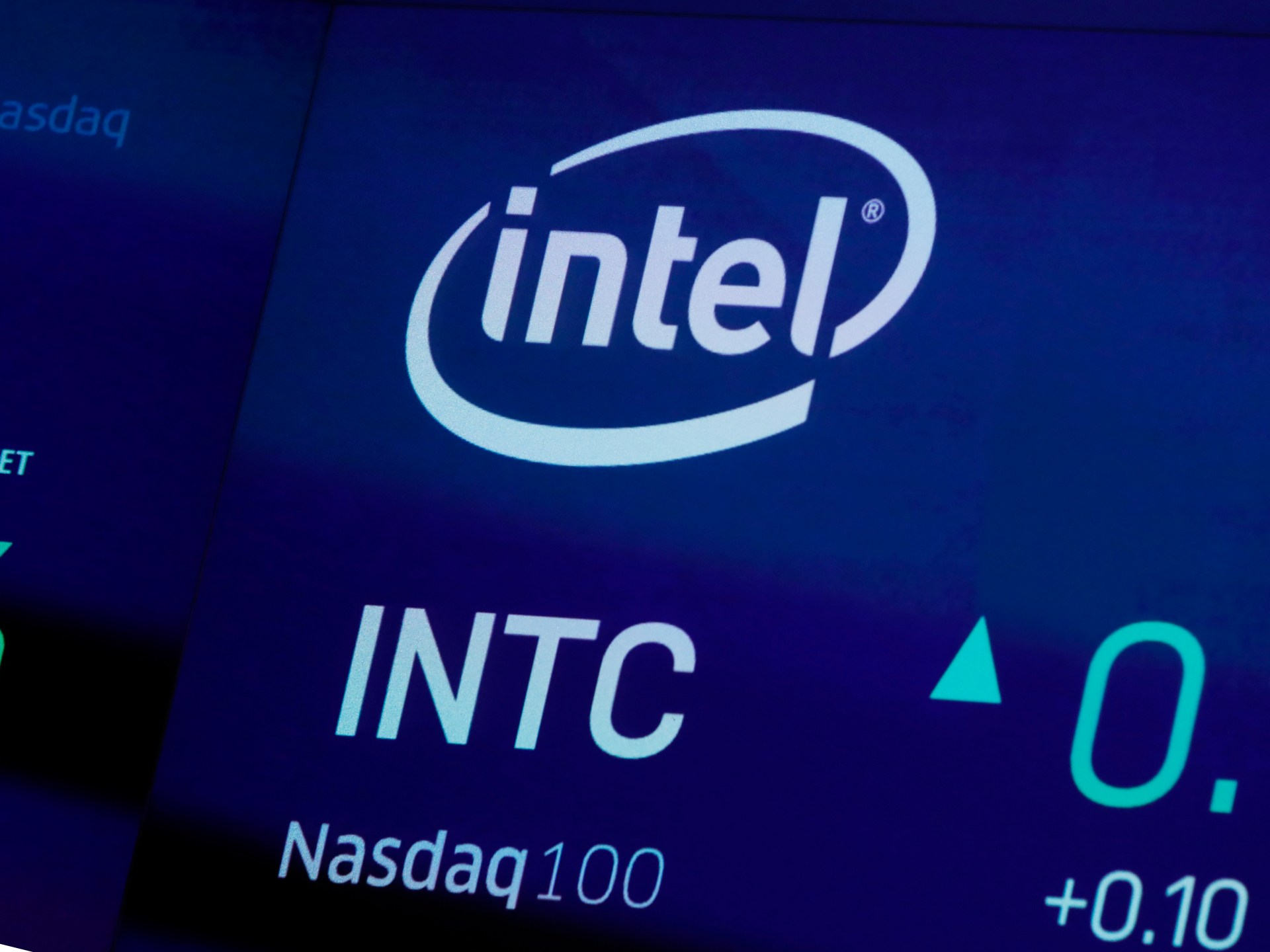Nvidia to become one of Intel’s biggest shareholders with new investment | Technology News
The White House denies any involvement with the deal despite Nvidia’s CEO meeting US President Donald Trump only a day before.
Published On 18 Sep 2025
Nvidia says it will invest $5bn into Intel, throwing its heft behind the struggling US chip company, but has stopped short of giving Intel a crucial manufacturing deal.
Nvidia, which is based in Santa Clara, California, announced the investment on Thursday.
Recommended Stories
list of 4 itemsend of list
The pact, which also includes a plan for Intel and Nvidia to jointly develop personal computer and data centre chips, represents a potential risk to Taiwan’s TSMC. TSMC currently manufactures Nvidia’s flagship processors, a business that the world’s most valuable company could one day extend to Intel. AMD, which competes with Intel for supplying chips to data centres, also stands to lose because of Nvidia’s backing of Intel.
Nvidia, whose must-have chips are powering a global artificial intelligence boom, said in a statement it will pay $23.28 per share for Intel common stock, a price slightly below the $24.90 at which Intel shares closed on Wednesday.
However, that is higher than the $20.47 price per share that the United States government paid for a 10 percent stake it took in Intel last month, an extraordinary development.
The White House has denied any involvement in the deal, which comes only a day after US President Donald Trump met Nvidia CEO Jensen Huang on Wednesday.
New opening
Nvidia’s latest investment will make it one of Intel’s largest shareholders, likely owning 4 percent or more of the company after new shares are issued to complete the deal.
Nvidia’s support represents a new opening for Intel after years of turnaround efforts at the famed US manufacturer failed to pay off.
Intel – once the chip industry’s flagbearer that claimed to put the “silicon” in Silicon Valley – appointed a new CEO, Lip-Bu Tan, in March. Tan has promised to make Intel’s operation lean and build factory capacity only when there’s demand to match it.
Crucially, the deal will not involve Intel’s contract manufacturing business, known as a “foundry” in the chip industry, making chips for Nvidia. Most analysts believe that for Intel’s foundry to survive, it would need to eventually win a large customer such as Nvidia, Apple, Qualcomm or Broadcom.
But the deal adds to a growing reserve of capital that Intel has accumulated weeks after it announced a $2bn investment from Softbank and received $5.7bn from the US government.
David Zinsner, Intel’s chief financial officer, told investors at a Deutsche Bank conference last month that the company was in a “good cash position” and would not require much more capital until it saw significant demand for 14A, a next-generation manufacturing process that it expects to invest heavily in building.
Under the deal announced Thursday, Intel is planning to design custom data-centre central processors that Nvidia will package with its AI chips, known as GPUs. A proprietary Nvidia technology will let the Intel and Nvidia chips communicate at higher speeds than before.
Those speedy links are a key differentiator in the AI market because many chips must be strung together to act as one to chew through massive amounts of data.
At present, Nvidia’s best-selling AI servers with those speedy links are only available using Nvidia’s own chips, but the deal would now put Intel on equal footing, giving it a chance to make money off each Nvidia server.
On Wall Street, Nvidia’s stock is trending upwards. As of 12pm in New York (16:00 GMT), it is up more than 3.4 percent from the market open. Intel stock is surging up more than 29 percent for the day.

